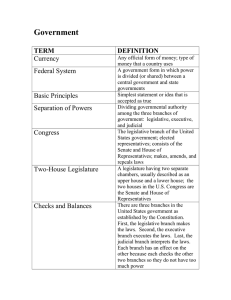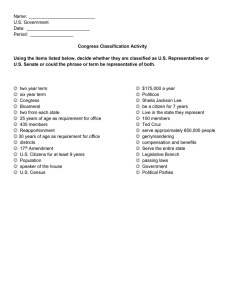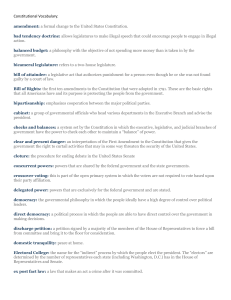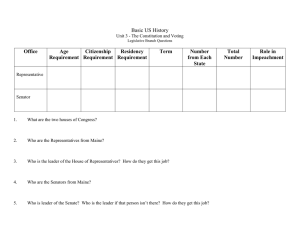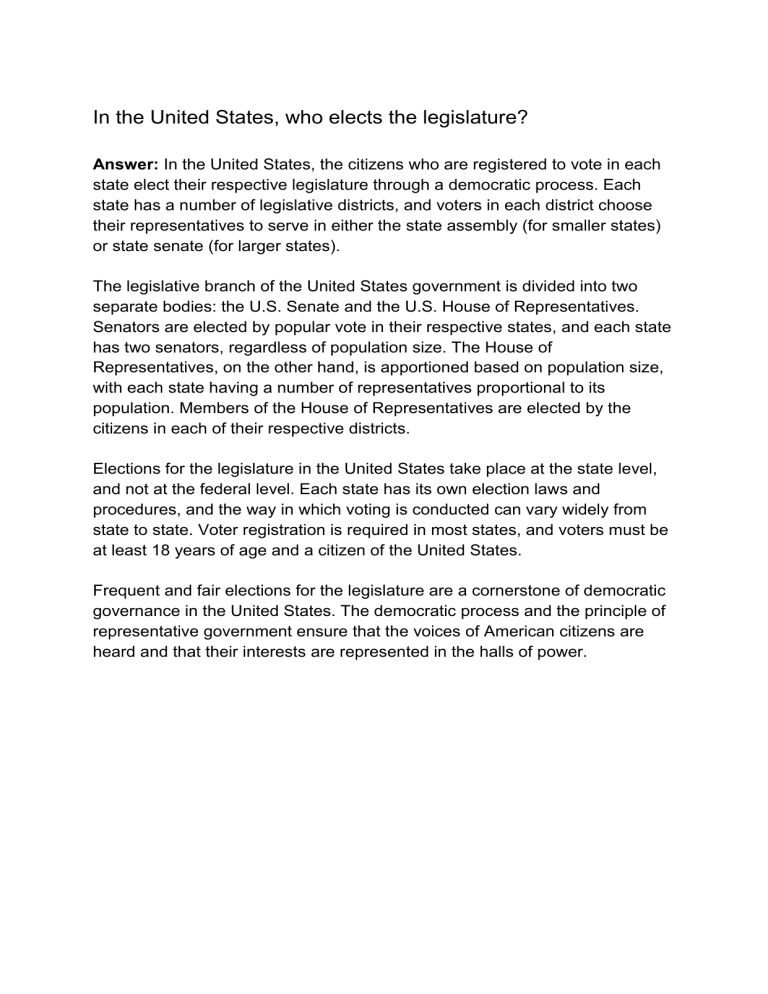
In the United States, who elects the legislature? Answer: In the United States, the citizens who are registered to vote in each state elect their respective legislature through a democratic process. Each state has a number of legislative districts, and voters in each district choose their representatives to serve in either the state assembly (for smaller states) or state senate (for larger states). The legislative branch of the United States government is divided into two separate bodies: the U.S. Senate and the U.S. House of Representatives. Senators are elected by popular vote in their respective states, and each state has two senators, regardless of population size. The House of Representatives, on the other hand, is apportioned based on population size, with each state having a number of representatives proportional to its population. Members of the House of Representatives are elected by the citizens in each of their respective districts. Elections for the legislature in the United States take place at the state level, and not at the federal level. Each state has its own election laws and procedures, and the way in which voting is conducted can vary widely from state to state. Voter registration is required in most states, and voters must be at least 18 years of age and a citizen of the United States. Frequent and fair elections for the legislature are a cornerstone of democratic governance in the United States. The democratic process and the principle of representative government ensure that the voices of American citizens are heard and that their interests are represented in the halls of power.
